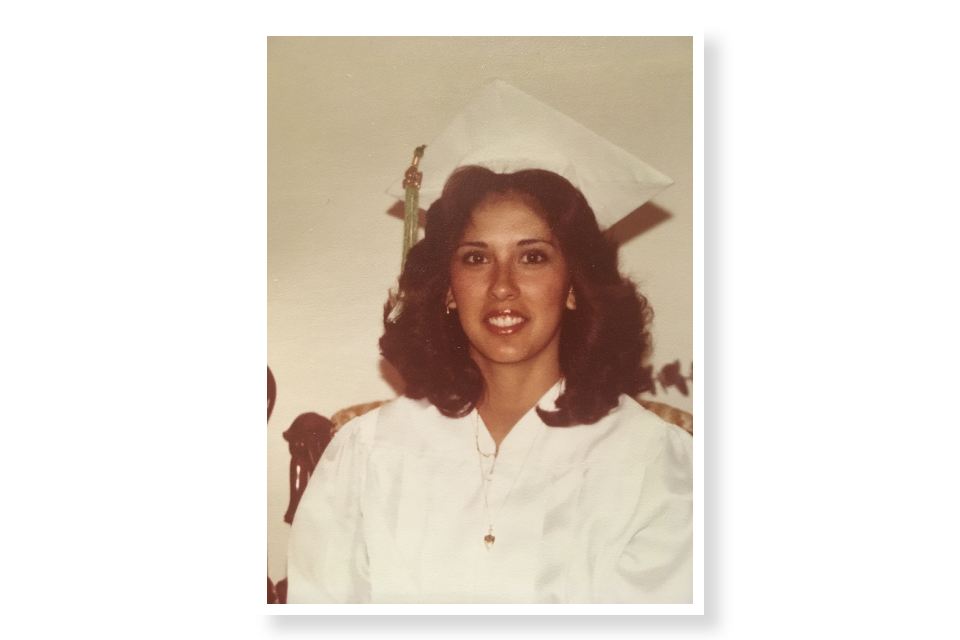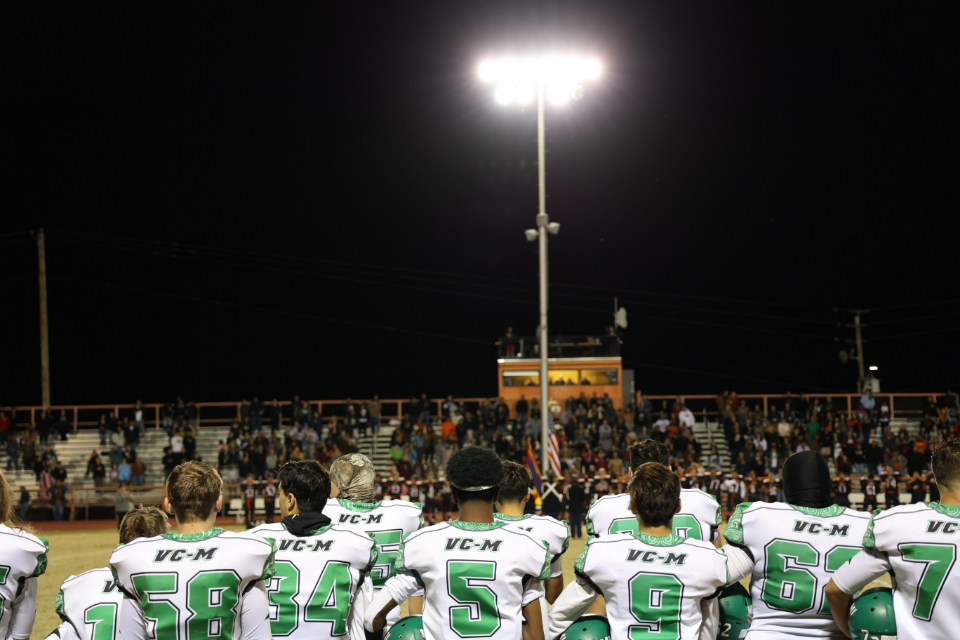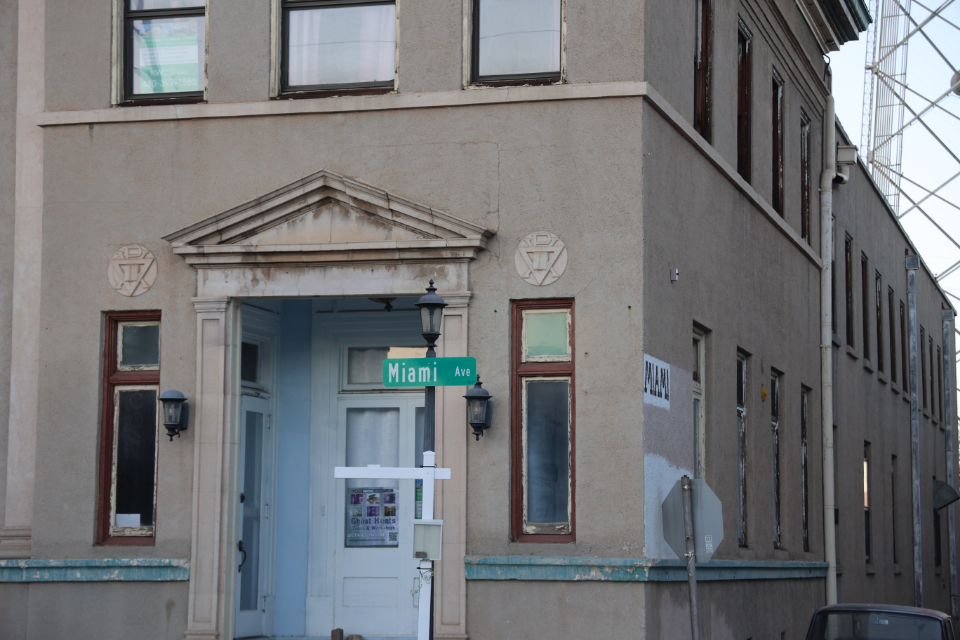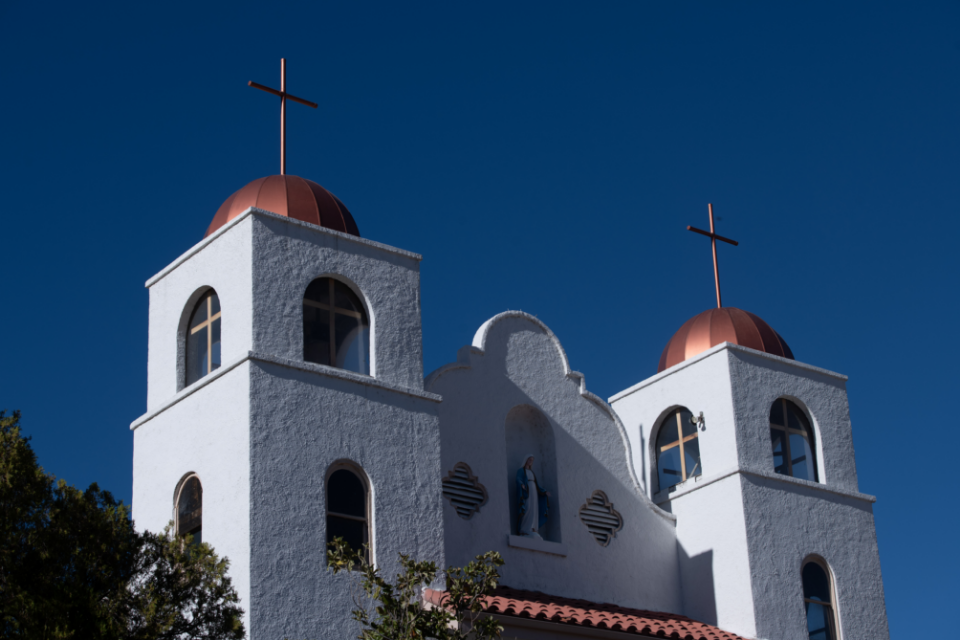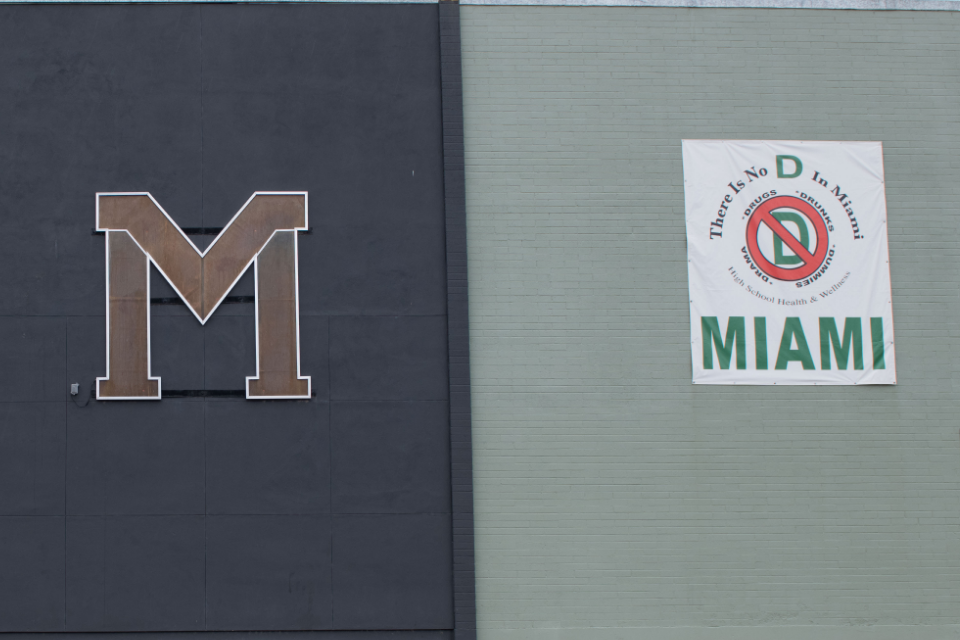Arizona values

Editor's note: This story originally appeared in the winter 2023 issue of ASU Thrive magazine.
Ask Nancy Gonzales, executive vice president and university provost, to name a critical factor driving the pursuit of higher education for Latino students. Family support and encouragement, she’ll say.
She knows; after all, much of her clinical psychology research studied this — and she lived it.
Gonzales grew up in the small copper mining town of Miami, Arizona, at a time when copper was a driving force in the state’s economy. Her parents championed her curiosity and love of learning. With their support, she earned a full-ride scholarship to ASU, becoming the first in her family to graduate from college.
“Although many people focus on the disadvantages of a rural upbringing, we didn’t see it that way. Miami was a place where parents sacrificed and families supported one another to lift up the next generation.”
— ASU Provost Nancy Gonzales
“Family is a source of connection, strength, pride and identity,” Gonzales says.
Those family and community values instilled in her as a child still guide her today.
“Family can be broad and is not always based on kinship or biological relatedness,” Gonzales adds. “We should think of ASU as one large family because it challenges us to make sure everybody feels connected.”
Focused on student success
That vision of an inclusive university community, combined with Gonzales’ record of administrative leadership, teaching and scholarship, is why ASU President Michael M. Crow appointed Gonzales as provost and executive vice president in 2021.
Before her current appointment, Gonzales, ’84 BS in psychology and biology, followed up by a Master of Science and PhD in psychology at the University of Washington, was a well-regarded, award-winning clinical psychologist. Examples of Gonzales’ many academic accomplishments include: principal investigator or co-investigator for more than 30 grant-funded studies, author or co-author of more than 160 peer-reviewed studies published in scientific journals, mentor to over 30 doctoral and postdoctoral students and hundreds of undergraduate students, appointments to numerous national organizations and boards and rising from Foundation Professor to dean of natural sciences in The College of Liberal Arts and Sciences.
“Nancy is a highly credentialed, well-respected leader among her peers who is a natural fit to be our executive vice president and university provost,” says Crow. “Her background and expertise will undoubtedly help the university advance its mission to be of the greatest public service to the citizens of Arizona that we can be.”
As ASU’s chief academic officer, Gonzales plays a central role in teaching and learning at the university. And she lives by a mantra: Student access. Student success. Academic excellence.
Removing barriers to success
Gonzales’ role as executive vice president and university provost is twofold when it comes to student success: Drive strategies that lead to the academic success of ASU’s diverse student body of nearly 170,000, including those from rural and underrepresented communities. And, break down roadblocks to higher education so that more Arizonans can access an ASU experience. Gonzales’ career makes her well-prepared to take on these challenges.
In her 30 years as a clinical psychologist, she studied the link between education and mental health disparities in order to develop programs, practices and policies to promote psychological well-being and resilience in underserved communities. She saw parents who valued education in these communities but lacked the social capital needed to support their children’s academics. She also found that lasting positive benefits, including better grades and long-term reductions in teen alcohol and drug problems were possible when families received simple solutions such as knowledge and resources to strengthen their connections to education.
To that end, Gonzales has conducted several interventions and longitudinal studies funded by the National Institutes of Health to chart the development of infants, children and adolescents living in diverse urban and rural communities in Arizona and California. Her research has examined development at multiple levels, from neurobiological and psychological factors to the role of community and neighborhood. Several of her studies show how traditional family and community values help youth develop a sense of purpose, self-regulatory capacities, and the habits of mind they need to thrive and overcome barriers in life.
Another part of Gonzales’ wide-ranging work has been guiding the strategy that led to ASU being named a Hispanic-Serving Institution in June 2022. The HSI recognition is reserved for colleges and universities in which Hispanic enrollment is at least 25% of full-time undergraduate enrollment. This distinction will pave the way for ASU to receive federal dollars to develop or expand programs supporting Latino students and helping them transition to college.
Gonzales credits the university’s HSI distinction to its mission of inclusion and the dedicated work of ASU's faculty and staff.
“We have many talented faculty, staff and leaders from diverse backgrounds all across our university. The breadth of their expertise and accomplishments speak volumes and give a glimpse of the exciting progress that is yet to come,” she says. Gonzales hopes to continue to pay it forward and open the door for more Hispanic students at ASU, one of the largest public research universities in the country.
It’s important to support underrepresented populations like Latinos at ASU, she says, as the numbers seeking higher education after high school lag behind the college going rates of white and Asian high school graduates, nationwide. This is unacceptable in Arizona where over 50% of K–12 students are Hispanic and where Latinos are the second-largest racial and ethnic group at more than 32% of the population.
But it isn’t just about supporting one group of underrepresented students, Gonzales says.
“It is ultimately about fulfilling our charter of inclusion and achieving our dual goals of equity and excellence for everyone.”
Connected to rural communities
When Gonzales was growing up in Miami, mining executives and miners lived in segregated neighborhoods, but their children went to the same schools.
“The mining industry used its influence to ensure we had strong schools and teachers, and that benefited all of us. This was true in many of Arizona’s mining communities where there was a lot of pride in local accomplishments, whether in academics or sports,” Gonzales says. “Although many people focus on the disadvantages of a rural upbringing, we didn’t see it that way,” Gonzales adds. “Miami was a place where parents sacrificed and families supported one another to lift up the next generation.”
A small example of this is Miami’s Copper Kettle, which the miners handcrafted that became a coveted trophy between the neighboring rival football teams at Miami High School and Globe High School, only 7 miles apart; the teams just played their annual football game against each other for the 99th year in a row this past October. The 65-pound trophy still serves as a demonstration of the townspeople’s pride in their community and family roots.
Currently, the university strives to help Arizona towns like Miami address modern challenges, including loss of some of the previous economic opportunities as mining and other industries changed. One solution is improving pathways to higher education through initiatives like ASU Prep Digital. It offers an a la carte approach to boost curriculum in partnerships with existing schools. Miami has 67 students currently taking classes and as many as 150 some years. It’s become a vital part of the school with about 500 students participating over the years, says Glen Lineberry, Miami’s principal.
“It is an extraordinary curriculum,” he says. “We call it the Cadillac of online instruction.”
Gonzales is one of Miami’s success stories and one who shares her story in hopes of inspiring others. She spoke to Miami’s faculty at the start of the 2021–22 school year, and Lineberry says, “She talked about the importance of community life, how growing up in Miami prepared her for the hard work and commitment required to make it in the world, and that memories of the town gave her strength.” He considers her “brilliant.” “We are very proud of her here,” he says.
Excited to continue the work
Every day at ASU inspires her to work with so many others who are transforming education.
“The world is changing rapidly and we have an important responsibility to provide all of our students with the opportunities they need for lifelong success,” Gonzales says. “We also have a responsibility as a large public service university to utilize all our assets, expertise and knowledge to solve society’s grand challenges and to ensure our work ultimately benefits the communities we serve.”
Story by Marilyn Garateix, a journalist with more than three decades of experience at The Boston Globe, the Miami Herald, the Tampa Bay Times and the South Florida Sun-Sentinel. Photos by Jill Richards, Sabira Madady and Ghassan Albalushi


